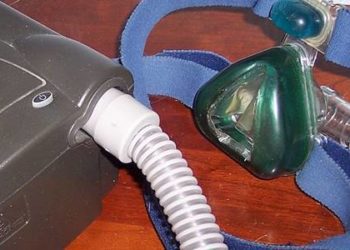Parents of children diagnosed with cancer more likely to start psychotropic medications
1. Parents of children newly diagnosed with cancer had significantly increased risk for a first prescription of antidepressants, anxiolytics, and hypnotics in the initial year following diagnosis.
2. There was no difference in risk for first prescription of psychotropic medication depending on cancer type. The greatest increase in risk was seen among parents who experienced the death of a child.
Evidence Rating Level: 2 (Good)
Study Rundown: Diagnosis and treatment of cancer can be extremely stressful for patients and their families, and especially for parents of children with cancer. However, there are few studies examining objective measures of parental distress following malignancy diagnosis. In this retrospective cohort study, researchers used registry data to compare risk for first prescription of psychotropic medications in parents whose children were diagnosed with cancer. Compared to other parents, these individuals had approximately triple the risk for a first prescription of anxiolytics or hypnotics in the year following a child’s diagnosis. No significant difference was seen between cancer types in risk for first prescription of psychotropic medication. The greatest increase in risk was seen among parents who experienced the death of a child.
These findings are limited by the use of prescriptions of psychotropic medication as a proxy for psychological distress, which may be influenced by provider prescribing practices and ascertainment bias. Furthermore, researchers attempted to exclude parents with lifetime prior psychotropic medications, but were only able to examine use within the 3 years prior to the study. Nonetheless, the study is strengthened by its large, matched sample and comprehensive data from a universal health care system that reduces selection bias. For physicians, these findings highlight the importance of screening for and meeting parents’ mental health needs when faced with new diagnoses of childhood cancer.
Click to read the study, published today in Pediatrics
Relevant reading: Long-Term Positive and Negative Psychological Late Effects for Parents of Childhood Cancer Survivors: A Systematic Review
In-Depth [retrospective cohort]: Researchers linked diagnosis data from the nationwide Danish Cancer Registry and Childhood Cancer Registry with prescription data from the Danish National Prescription Registry to compare first prescription of psychotropic medicine in 6744 parents of children with cancer with 65 747 parents of matched children without cancer between 1998 and 2014. Parents in the comparison group were biological parents, had children <20 years of age who were diagnosed with cancer, and had no prescription for psychotropic medication in the years 1 to 3 before the date of diagnosis. Parents were followed until first redeemed prescription, death, emigration from Denmark, or June 30, 2015. Proportional hazard models estimated risk for first prescription of an antidepressant, anxiolytic, or hypnotic.
Parents of children with cancer had a significantly increased risk for a first prescription of psychotropic medication (hazard ratio [HR], 1.83; 95% confidence interval [CI]: 1.66-2.01) in the first year after diagnosis, specifically for anxiolytics (HR, 2.99; 95%CI: 2.54-3.52) and hypnotics (HR, 2.64; 95%CI: 2.26-3.09) but not for antidepressants (HR, 1.02; 95%CI: 0.87-1.20). No statistically significant difference was seen in risk for first prescription of psychotropic medication between cancer types. The greatest increase in risk was seen among parents who experienced the death of a child.
Image: PD
©2019 2 Minute Medicine, Inc. All rights reserved. No works may be reproduced without expressed written consent from 2 Minute Medicine, Inc. Inquire about licensing here. No article should be construed as medical advice and is not intended as such by the authors or by 2 Minute Medicine, Inc.






![In utero administration of ivacaftor averts multiorgan disease in ferret model of cystic fibrosis [PreClinical]](https://www.2minutemedicine.com/wp-content/uploads/2019/04/The_fluorescent_microscopy_image_of_CFTR_tagged_with_EYFP-75x75.jpg)


